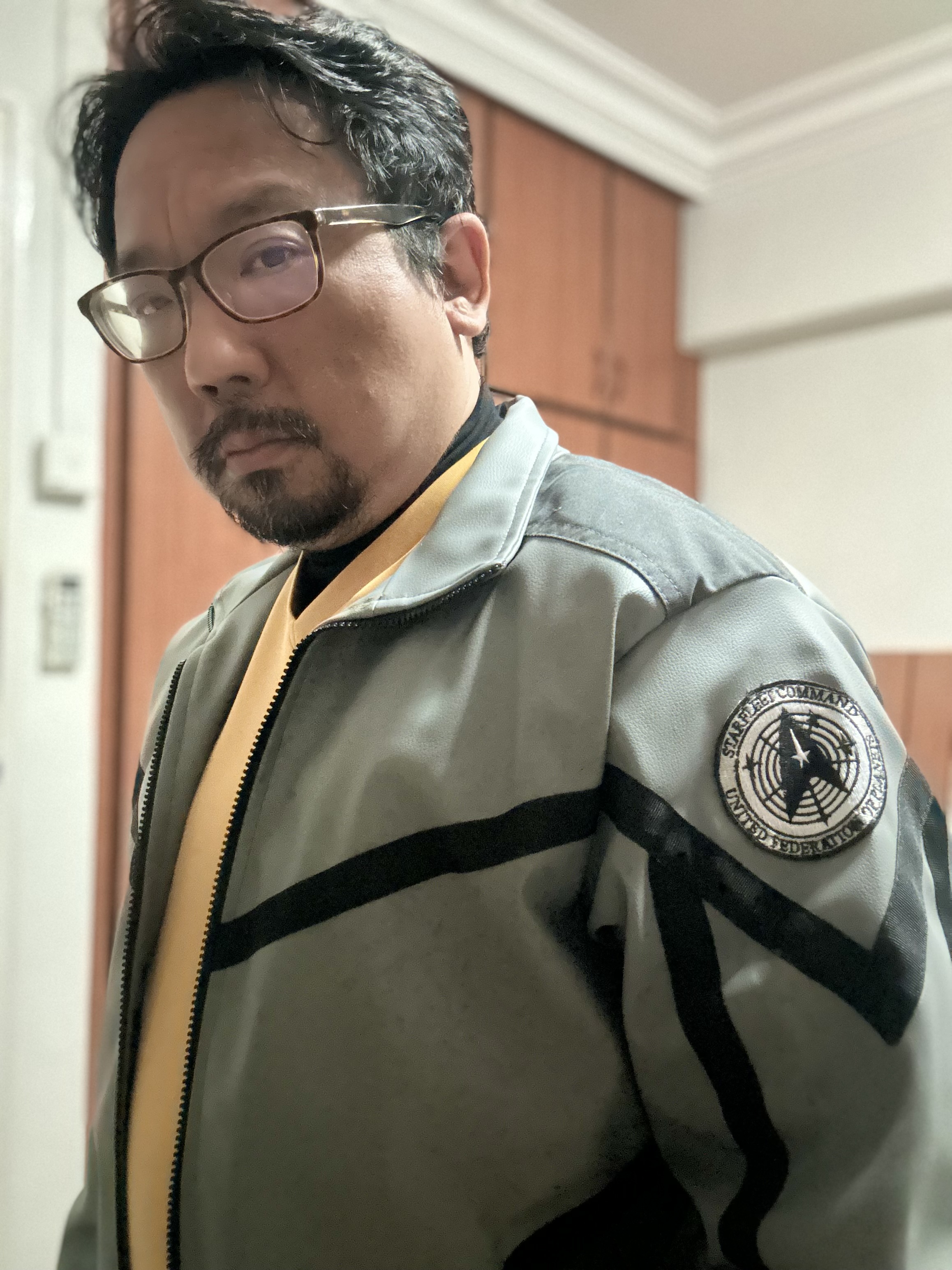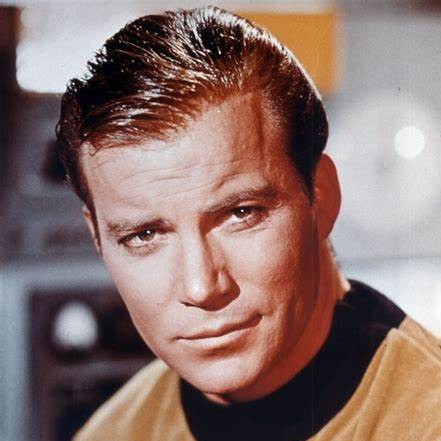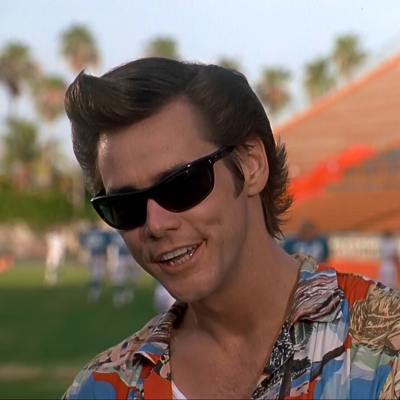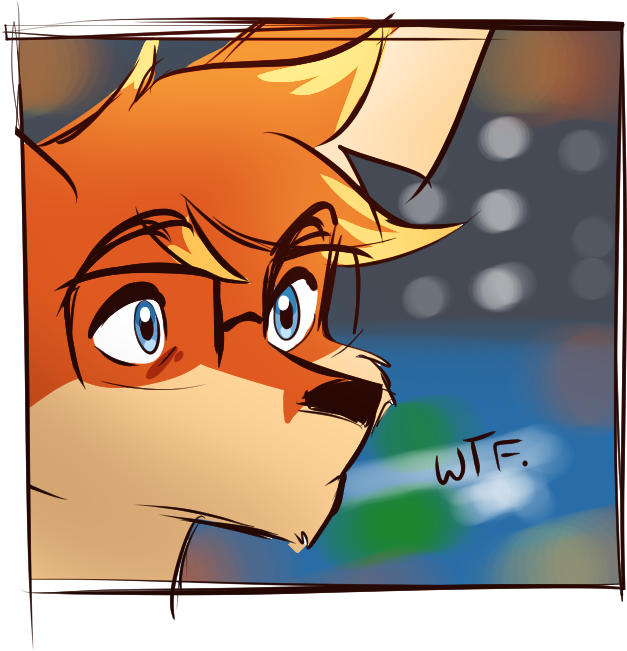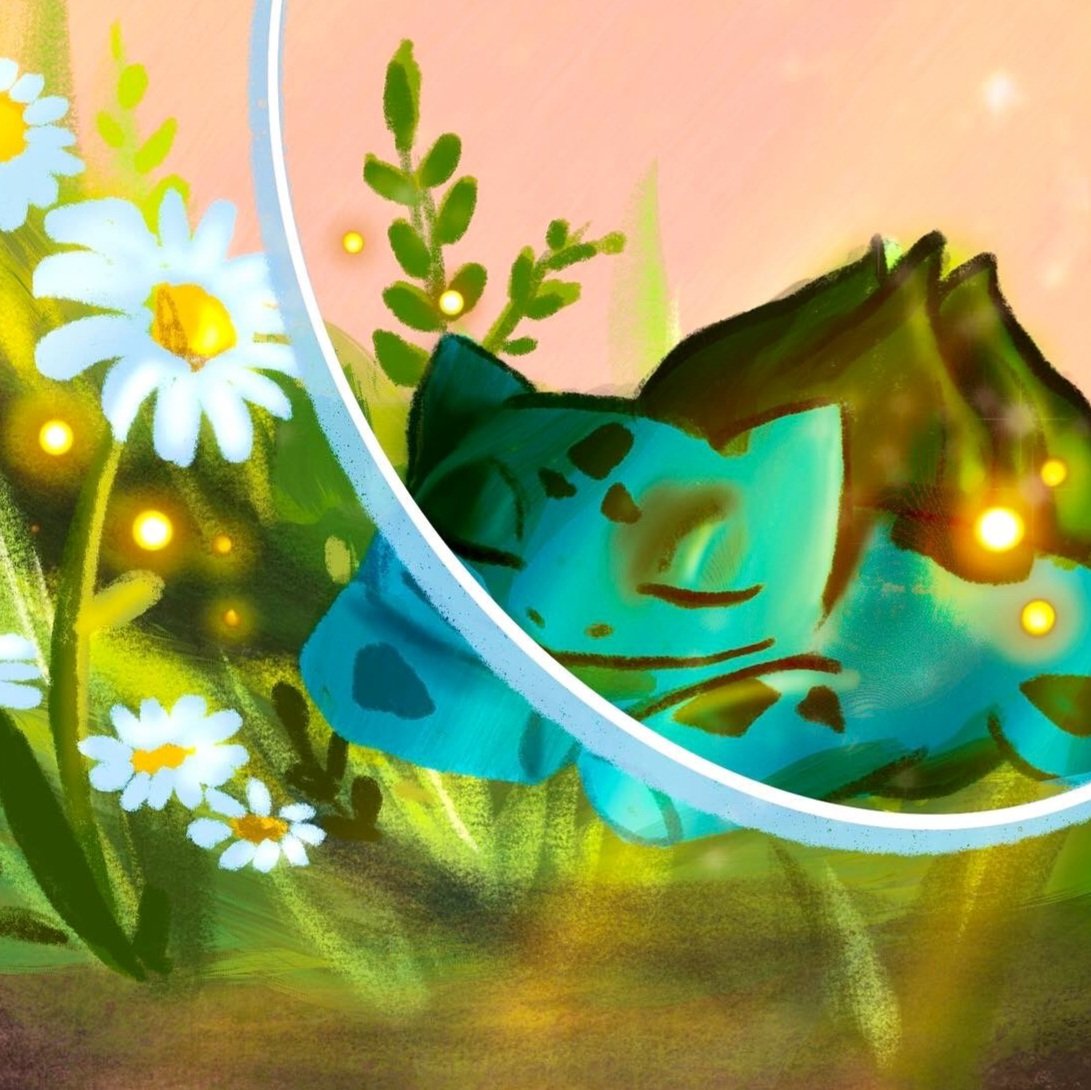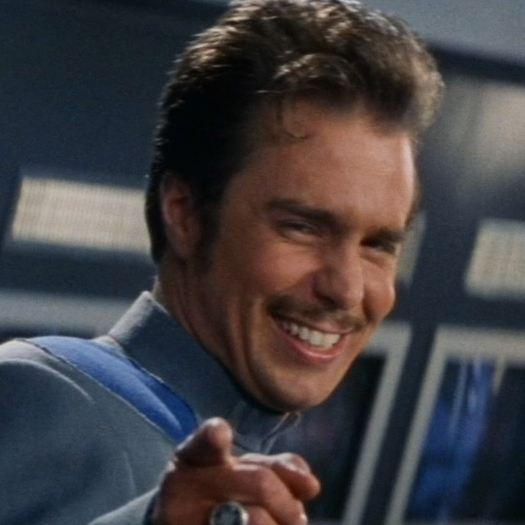Logline
Commander Una Chin-Riley faces court-martial along with possible imprisonment and dishonorable dismissal from Starfleet, and her defense is in the hands of a lawyer who’s also a childhood friend with whom she had a terrible falling out.
Written by Dana Horgan
Directed by Valerie Weiss
This was a fantastic episode. One thing I liked in particular was that they had an actual lawyer defend Una, and not just have Pike do it.
They kept the tradition alive by having a starship captain handle the prosecution, though.
But in contrast, this lawyer (Neera) won by mainly by being a good lawyer (albeit in a tv legal drama kind of way). Setting things on fire with the first witness to create a bunch of fog and doubt about the premise of the case, realising that other important regulations impinge on the case and setting up testimony to substantiate the effect of those regulations.
My memory of most other officer-lawyers is that their methods tend to focus more on the moral “issyew” (Picard’s pronunciation of “issue” in Measure of a Man).
“issyew”
/ˈɪsjuː/ is very common in RP. You hear it all the time in parliament.
Oh yea I know. In the context of TNG though, where everyone else has US accents, Picard’s Britishness goes up to eleven on that word.
Oh yeah, an actual lawyer and one who was not assigned by Starfleet. Una was also spot on with her complaint that her original counsel was paid by those prosecuting her. 👏
What a beautiful episode. The message was great and it wasn’t ambiguous enough for people to really misinterpret or miss it while still remaining an indirect allegory for current times. The allegory was clearly about either homosexuality or undocumented immigrants and I appreciate that people from either group can likely relate to this episode. As a gay guy I have to say I definitely did.
Also, the scene with Spock’s “outburst” was hilarious and I loved seeing the (on the surface) emotionless Spock once again.
Overall I loved the episode and I’m very glad to see one I love after personally disliking the previous one.
The allegory was trans people. Hence all the talk of needing to ‘pass’ to be accepted and the wonderful lil touch of Unas child cast being the colours of the Trans flag
It is not unlikely that this is the allegory they had in mind primarily, but so much of the bigotry and hatred depicted applied to gays, blacks, jews, women and probably more groups, too.
We’re rhyming history, every generation we’re trying to overcome prejudice, oppression and hatred against a new minority, only for some to conjure up a new distinguishing feature to define a minroty to be ostracized. It feels like treading water sometimes, can’t we just cut through the bullshit in one go, but no, we have to go through all the steps, while some new group (or a subgroup of a previous group) has to endure all the pain this brings. Sometimes it feels like we’re not really getting better. But maybe we are. But it’s still too slow, it still repeats itself, and nowadays we might experience multiple such cycles in our lifetime, when at some point it took generations to get that kind of progress?
Ah, I’d missed that detail. I was on the fence about whether or not it was a trans allegory because it didn’t initially feel like there were as many similarities in her story to being trans as there was to homosexuality and being an undocumented immigrant but upon further consideration I have to agree. Though it does seem to me like it is also about those other groups I mentioned. I suppose it’s a bit of a catch-all (which worked great).
The way Illyrians were segregated into Illyrian and non-Illyrian cities except for people who could pass echoes the Jim Crow era of US history, with black people being segregated and some of them trying to pass for white.
The refusal of service to those who were found to be Illyrian is like antisemitic attitudes in pre-war Nazi Germany, or the refusal of service to homosexuals. Most of what happened can be compared to any persecuted minority, racial or sexual.
That’s the beauty of a good metaphor. And the ugly universality of bigotry.
I don’t know how well that metaphor works since Illyrians are aliens. The Federation is already full of aliens with biology and abilities different than humans. So what if Illyrians have modifications that make them different than humans? Vulcans have two sets of eyelids and are adapted to live in harsh deserts humans can’t survive in. They’re also telepathic, three times stronger, and have perfect memory.
Does that mean the Federation is a segregated society between all different races? If they split cities between Illyrians and non-Illyrians, wouldn’t they also be splitting cities between Andorians, Vulcans, Tellarties, etc.?
But this was looking at a group of people that had been othered, while the federation had accepted race they othered Illyrians. So it does bring in 50s America or South Africa due to that othering that was alive at those times and still is (BLM being needed). It does also include the modern othering that is going on now so absolutly it speaks to the trans community, but all the same arguments apply to others (one of the the reasons I despise LGBdroptheT is as a group that was othered, a minority of the LGB minority now attempts to join the majority so they can other Trans.)
Now I can just be dismissed as woke
But the Federation has no history with the Illyrians. The Illyrians weren’t forced to live in Federation society. Their ancestors weren’t enslaved by the Federation. Their planets weren’t conquered by the Federation. As far as we know, they’re not refugees who had to flee into Federation space.
It would be different if Illyrians had always been a group within the Federation. But they chose to go to the Federation with full knowledge of the Federation’s laws. They have the choice to reject Federation membership if they wanted.
Not being citizens of the Federation does not allow Federation citizens to harass the Illyrians nor to threaten them.
And since the Federation and also the Star Fleet have an ideal of tolerance, IMHO it was a wise decision to ban augmentation (against the background of the Eugenic Wars) but to judge wisely if a single person really is a threat or not.
There were also parts of it that could easily be interpreted as Jim Crow era politics. Passing was a thing for Blacks as well. Splitting into two different cities reminded me of both redlining and “separate but equal.” Of course, history repeats itself, and this allegory could also be applied to Jews, Native Americans, and any other persecuted minority, including gay and trans people. Una’s whole situation could pretty easily be mapped onto a “don’t ask, don’t tell” situation as well.
I agree. It could also be read as an allegory for undocumented people - her family’s fear of going to a hospital, for me, echoed the fear that many undocumented people feel around seeking help from any organization that might be affiliated with the government
Splitting into separate cities is way more reminiscent of ghettos, which is extremely dark. I don’t think the show quite grapples with how monstrous this actually is, ignoring my concerns about the gene modification stuff as a metaphor, if we take it on face value as a signifier of marginalization this is not some cultural bias the Federation needs to work through, what’s described is borderline genocidal.
I don’t think Spock was emotionless. For one, an “outburst” is emotional. That he noticed it just means he’s aware of it and used to not do it. Then, whenever he spoke of Una on the trial was super emotional. Praising her is because he likes her, not because it is logical (in the setting).
I really enjoyed it. Star Trek is at its strongest when it gives itself time to mull over philosophical, ethical, and social issues. This episode really knocked it out of the park. Just really well-written overall.
Honestly, the trial episodes of Star Trek tend to be the some of the best. Drama without explosions are when it’s different from most other sci-fi franchises, and it’s good to see it come back. SNW really is the best current Trek show.
“I regret that you had to witness that outburst.”
Best line in the show!
Yeah Spock makes this show much better
I really like this Spock, don’t get me wrong, but I’m finding his increasing “humanness” a bit distracting. I mean, making a joke in court? That was a bit far-fetched.
One of the problems that this show has to grapple with is that we already know Spock very well from Leonard Nimoy’s portrayal. I’d go so far as to say that - notwithstanding a few gaps - every major event of his life is known to the audience, and we are very familiar with how he’s “meant to be”.
What then is an actor to bring to such a part? Ethan Peck can’t just replicate Nimoy’s performance - for one thing, it would be boring. The writers take advantage of this series being a prequel to do the only thing they can: show how Spock became the Spock that we know from TOS. They use his appearance in the TOS pilot “The Cage”, where he was visibly more emotional and “human”, as a touchstone, and make his journey towards emotional control and “Vulcan-ness” part of his character arc for this show.
I went into it a little in another post, but I think Spock’s manner is more familiar and “one of the guys” because he’s allowed himself to become emotionally attached to the rest of the crew, and that bleeds into his personality, making him more liable to use humour and jokes to relieve tension. A few years later, when Kirk takes command and many of these officers have moved on, he decides that he will be more emotionally guarded, letting his guard down only with Uhura and Chapel - and only in brief, relaxed moments.
I took as needling the Vulcan Jag…which he couldn’t resist. The set-up was his uncontrolled outburst in the Enterprise mess.
Just what were they thinking putting that maniac on a Starfleet ship.
Complete loose cannon.
While it was played as a joke, the whole “was she hiding something” had me on first watch going “but everyone is hiding something, surely”
Spock was highlighting this with his trademark precision.
The joke in the court felt kinda cringe, though I otherwise really like Spock in SNW
Loved it. Star Trek has always been handwavy with legal rules in favour of a compelling debate and this was no exception.
As a Canadian, I instantly started thinking about the metaphor in terms of laws the Canadian government had against indigenous people practicing or teaching their cultural practices.
On the other hand, as a gay man, I was thinking about when homosexuality was considered a criminal practice and how sometimes gay men will stay in the closet to avoid discrimination.
One of the things that’s most interesting to me is how many minorities groups Una’s experience maps to in some rhyming way.
I’ve heard a number of people interpret it about themselves, which is really good, the allegory was understandable while still being a cohesive story.
I thought trans people were a good fit for the metaphor, given the body alterations that can be involved.
I think how the genetic augmentation ban was portrayed in Una’s case in particular - a military court martial - was similar to “Don’t Ask Don’t Tell”, so LGBTQ+ groups do seem to fit better than, say, race or sex. Even with DADT no longer in force, there’s topical parallels, like you suggest, with trans people. But there was an emphasis on the Illyrians’ genetic augmentation being “their custom”, so you can apply religious or cultural prejudice equally as the allegory.
Every show is handwavy about legal rules, not just Trek! Trek at least has the benefit of usually being a military court for a fictional military organization.
When the Federation gets a little handwavy with legal rules, just remember that this is a civilization which went through a “kill all the lawyers” phase
I was going to say “I don’t think there was a debate here really, unlike say in Measure of a Man”. But that’s not actually true, I just find the Federation argument so specious and hypocritical compared to many other Federation points that I honestly don’t see their POV.
I’m… not gonna lie, I get the Federation’s argument. Genetic engineering is a dangerous thing to start doing to sapient species, and it can lead to a resurgence of eugenics and other stuff like that.
The only real issue with their stance is that they discriminate against people who’ve been genetically augmented, instead of simply trying to prevent stuff from happening in the first place.
Genetic engineering is a dangerous thing to start doing to sapient species, and it can lead to a resurgence of eugenics and other stuff like that.
Sure, but so is freedom of speech, and we’ve been resurging Nazis just fine sans genetic engineering. I guess I’d want to know why people think it’s so cut and dried when we don’t think that about plenty of other issues like speech and misinformation and disinformation, various anti-patterns of information flow on the Internet and such. I think you easily end up in a place where you divide medicine vs engineering.
The other thing I think is dangerous about the genetic engineering is inherently eugenics is that it seems to require beliefs that there are actually “better” genetic IDK settings? And that engineering will pull them out. But this would also imply that there are naturally occurring “better” people, and that is controversial to say the least.
I think it’s patently obvious that there are people influenced by genetics but needing specific nurture to make the most out of it to be more skilled in one area or another. I’m never getting into the NBA just because I’m well under 6’ tall, and I wasn’t hurt for nurture.
The problem with eugenics as I see it is the idea that there is a “better” in all aspects platonic ideal we could engineer or breed our way towards, and there’s not really any evidence of those people existing, and I’ve seen plenty of speculations that moving one thing too far out of norm has other affects. I don’t think we know it’s true, but it’s certainly plausible that there are people who have various aspects that when increased tend to cause either through genetics or more likely culture and the like other aspects to be neglected.
For instance, if you’re very good at school / book learning, you might find that sort of young experiences more enjoyable than say sports, where you’d have to work at it. I sort of doubt without an authoritarian system already in place well before genetic engineering that you’d be able to interest even enhanced people in everything, and if they’re just better at some things I don’t see why people who already don’t buy into the eugenics philosophy would not treat this just like a Michael Jordan sort of person.
I really like the look fo the dress uniforms. Surprised that they never got Pike to the stand, especially after Una confessing that she told Pike 4 months ago.
Now that the cast has been reset, I’m ready for them to explore some strange new worlds.
Honestly, the sets and costumes for SNW are setting the bar for TV shows in general, let alone star trek. Just as much as the new plots, I’ve been looking forward each week just to the visuals.
Yes, this. It’s setting a new bar. Fantastic design, well executed.
SNW seems to have hit a gestalt of not just production and costume design but also lighting and cinematography. Like TOS and early colour television, it’s making the most of the new UHD technology. Everything has come together and is reinforcing the impact.
Discovery was reaching for this in the 32nd century design, and even with the Enterprise bridge as originally built for Discovery season two. The principal ship sets from the first season were an ongoing constraint though. Costume designer a gersha Phillips found her initial attempts to put the Discovery crew into 32nd century uniforms did not stand out against the ship’s dark bridge.
It will be interesting to see if they can achieve something similar in the 32nd century with the new Starfleet Academy show.
The crew quarters with those slanted columns look really sleek.
Surprised that they never got Pike to the stand, especially after Una confessing that she told Pike 4 months ago.
I think Pasalk was pretty out of line with his approach - his questioning essentially amounted to a criminal investigation of someone else. My knowledge of law isn’t very strong, but that seems inappropriate.
You generally can’t make people incriminate themselves, and upping a charge from fraud to conspiracy would be exactly that. That is, in a court run by laws instead of TV logic she could’ve remained silent.
…unless there’s some special sauce in US law that says “once you take the stand” or something, dunno I don’t speak common law and Trek can’t help itself but assume US law but it definitely doesn’t look kosher.
In the US, wouldn’t she be able to plead the 5th?
TNG’s “The Drumhead” shows us that Federation law (or at least Starfleet Military Code of Justice) includes a similar right. Crewman Simon Tarses invokes the Seventh Guarantee when asked about his Romulan heritage.
It’s definitely possible that the Seventh Guarantee wasn’t part of the Code of Justice until after this incident, too. Maybe there’s a push for it after the United Federation of Planets v. Una Chin-Riley ruling because of the conduct of Pasalk.
It’s possible. In all cases, Batel clearly states to Pike in the mess that the interrogated person has to answer.
There’s nothing that beats the knowledge of the collective!
I couldn’t help but wonder whether they’re setting him up as a badmiral or it was just Chekov’s gun from the Vulcan brawl. If the latter, they did a lousy job of tying them together … I was going with option A while watching and only considered B afterward.
In my opinion that might have been the perfect Star Trek episode. Well written, relevant to what we face in modern day society, and a celebration of the crew of the Enterprise as well as the world as we wish it to be. A civil rights trial for the 21st (and 23rd century). I needed to see this today.
This was an absolute gem. I don’t have much of substance to add just now (except that those dress uniforms are very nice), but after being on the whole disappointed by the season opener I am extremely pleased with this episode. Definitely one of the strongest in the show so far, which is no small feat.
I really loved the dress uniforms. Particularly the details on the collars and on the medals. I only wish they’d done a little more with the Admiral dress uniforms. Leaving them all in Federation Blue like early Discovery is a little odd.
Superb episode, a real high mark. The 1st episode was so disappointing I was worried they’d gone of the rails with the nonsense kung fu segment in the middle, but Ad Astra Per Aspera was a perfect episode.
The writing was great, and the pace and rhythm perfect with highs and lows, good use of emotions and a perfect ending. I love these character driven episodes - we learnt more about Una, and also La’an in effective way, but also about the context and imperfections of the Federation. The cast is also great, making the close family like dynamics of the Enterprise command staff feel real.
I’m glad they also didn’t put Pike on the stand. It allowed Una and Neera to shine, and Neera (Yetide Badaki) who was a superbly crafted and acted character - she ran the gauntlet of dislikeable to a most loved character in one episode.
I think this episode was really good…if the issue of discrimination was over literally anything other than a social practice of genetic modification. Star Trek’s hardline stance on linking social genetic modification to eugenics is one of the things that I’ve really appreciated, especially as corrosive “thought experiments” about it have sort of entered back into the discourse. I don’t think you can practice genetic manipulation on a society wide level without it going very bad very fast. At least I don’t think humans can, and the episode doesn’t really make a case for why the Illyrians are better at it.
The core message of this episode is so important, especially at this current moment, and the right of people to self determination and to safety and security in their identities and differences is right at the heart of Star Trek, so I’m glad to see SNW continue to affirm it. But…just…there are reasons, real reasons, with lots of horrific history behind them, for why normalizing genetic manipulation in the name of improving or “fixing” populations of people is still a real third rail for me, and I wish the episode had figured out how to engage with that specifically a bit more. This episode does not actually convince me that in the far future utopia of the Federation the dangers of genetic modification as a practice have been addressed, and in absence of that “It used to happen and its bad, but stuff is better now and can’t we relax a little” is a bit…hollow
I think you could fix this for me if you made it so that Illyrian genetic modification was something that members of their species voluntarily entered into in adolescence or early adulthood. Make it more of a practice that people voluntarily keep up and less of a program that their society runs and the whole thing works way better for me. That also makes the loose analogy to transgender people in our current time, and really just the right of bodily autonomy and self determination, way more coherent.
I think they kept that genetic manipulation is bad for the reasons you suggest…but also that the children did not have a choice and shouldn’t be punished for their heratige or things they didn’t choose. It was more don’t single.out the individuals
It was trying to do that, but then doesn’t have the time or space to set up how the Federation is going to regard Ilyrians going forward, or if anything is going to change. Its like they settled on “gene modification” as the one discrimination they thought the Federation held onto in the future and slotted it in for story purposes, but without the space to actually deal with the reasons why its taboo. Ironically I think if they had made it about something closer to an actual religious practice and said “Discrimination still exists in the future, lets talk about it” this episode would have worked way better for me
I really hated this episode for this reason. I hate the thought experiment of “what if we found a planet where everyone practices eugenics and so therefore it’s racist to be against eugenics”.
Like if the rest of the world had found an isolated Nazi Germany, would it have been discriminatory and prejudiced to be against their practices? To not let them into the military? Of course not
Like why even write that plotline? Why are the writers choosing to legitimize eugenics like this, like it ever could be neutral or good and not horrific? I’m unwilling to entertain the idea that there’s a good way to do it, just as I’d be unwilling to entertain a fictional society that showed slavery in a positive light
I am European, we had an interesting talk about the travelling community at my work the other day. When certain groups of travellers come to town there is issues with their culture fitting with the settled communtity and a small but visible element of not following the laws and customs. From issues with their approach to educating their children especially girls, to petty theft, to resolving disputes with violence.
However they revealed among those at my work were several children of travellers or even those that had travelled and settled down. For the first time I heard my self internally saying “not you though your the good ones” and felt ashamed. Ina a sort of interview format they revealed people called local sites slurs in front of them or even they joke about his RV (he has still some connection) being a “[traveler slur] wagon” not realising his connection and that it does hit home to his roots.
It really opened my eyes to those in a communtity where there may be a large minority that have questionable practices but we should still treat individuals on a case by case basis.
a similar thought might be devout Muslims (e.g. personally I think following religious practice IS a choice) with community level mysogeny or homophobia. Again while we may not agree with the community, hating the individual is not humanity.
Again, the strange practice the writers chose for this planet was eugenics. It’s like writing nazis as a minority. I’m a Jewish person and my family’s entire town was slaughtered by nazis. Romani people were also slaughtered in the Holocaust. I’m sure they would not appreciate their murderers being framed as the victims.
The writers didn’t have to depict eugenicists this way, as if their practice was a benign cultural tradition. Eugenics is an awful practice that’s killed tens of millions in the real world. It doesn’t need apologetics that make people question “but what if we’re being mean to the nazis by not letting them do their tradition of genetic modification for the betterment of their race?”
It’s illegal to practice eugenics in the star trek world because the eugenicists literally took over as despots and oppressed everyone during the eugenics wars. Do you think that it would be appropriate to have people who are proud eugenicists come into your society flexing their supposed genetic superiority (another piece of writing I protest btw) and teaching people by their presence that eugenics is actually benign and actually does make one genetically superior to others?
When I think of the situation with Una, it makes me think of cultural practices like genital mutilation, a backwards practice that parents make for their children, as individuals, that is traditional but hurts their child. It would indeed be fucked up to hurt someone in that way, and it’s illegal for good reason. It’s not benign, but it also would be cruel to blame the child for something their parents did to them and make it illegal for them to participate in society.
But genital mutilation isn’t genetic modification for the betterment of the race. There’s no such thing as genetic superiority, eugenics is a pseudoscience and it’s messed up and irresponsible to depict it as an effective benign thing that works at actually making a race superior. The writers should have chosen a different practice than this instead of worrying an episode that does apologia for a terrible practice that is illegal (in universe, not irl unfortunately) for a good reason
I agree with this. It was clear from when the lawyer called the eugenics laws “race laws” that Number One was going to get off somehow, but I really missed seeing in the courtroom somebody make the case that genetic augmentation is meaningfully different from genetic modification – in particular in the case of Illyrians, that they modify themselves to exist harmoniously with their environment and not to breed superhumans. Eugenics is bad, and genetic augmentation is also bad and I think corrosive to society, as is covered in Doctor Bashir, I Presume.
Overall, I thought it was good Star Trek, but missing a robust engagement with the issue at hand which was disappointing. A better episode than last week, though.
Oh also – it was very exciting to see a Tellarite! We barely see any of them, especially compared to the other three founding members.
EDIT: Thinking about it more, I do actually think it’s a bit objectionable to call anti-eugenics laws “race laws”. I get that Starfleet is fictional, but in our actual universe, “race laws” have tended to go hand in hand with eugenics, so it really feels a bit … unfortunate. And based on this episode’s Ready Room, they seem pretty comfortable with the idea that Starfleet and the Federation are in the wrong about genetic augmentation, and I don’t feel like they drew the line in the episode or in the Ready Room episode between augmentation and modification.
But…just…there are reasons, real reasons, with lots of horrific history behind them, for why normalizing genetic manipulation in the name of improving or “fixing” populations of people is still a real third rail for me, and I wish the episode had figured out how to engage with that specifically a bit more.
Other episodes did, and I hope we’ll see more of that. Specifically, it’s about Illyrian culture: Genetic modification is deeply ingrained, required in their ethics: “We don’t terraform planets, that’s disrespectful of nature, we transform ourselves”, as heard previous season (I’m sure someone will fill in the episode number). As such the practice doesn’t root in a desire for dominance or superiority, but gentleness towards the universe.
That is, the issue with the eugenics wars wasn’t genetic manipulation itself, but that humanity was war-like and out for dominance and superiority. The augments’ attitude of supremacy simply reflect cultural attitudes back then, they were not caused by genetic modifications, but enabled. (Alternatively: The bad idea of imbuing augments with such a sense was due to bonkers scientists influenced by cultural attitudes).
Or maybe more like entheogens: Drugs that kill one society are used responsibly and for benefit by others because they have cultural practices regulating them, rites (regulations) saying when and where and why they should be used.
If the federation ever gets around to legalising genetic manipulation having regulations written by Illyrians and Denobulans sounds like a very good idea.
What I can’t get out of my head this morning is actually Bashir’s plotline with his parents on DS9, because it captures what’s so insidious about even “benevolent” genetic modification. He’s not angry at them just because they broke the law, he’s angry at them because they decided they didn’t like who he was and chose to transform him into someone else, someone he feels is a different person. And this is actually the fundamental argument against a social program of gene management in real life; it allows society to police what types of bodies and what types of minds are “normal” and flattens species diversity and experience diversity in favor of whatever the norms say is “better”. The danger isn’t just the risk of Khan like supermen, its a moral argument against determining how people’s bodies and minds are going to develop before they can even consent, even before they’re born.
As strongly as I feel about this, I do think you could create a case for why what the Ilyrians do is meaningfully different, the “adapting to other planets rather than making them adapt to us” idea is interesting and complicated, but it felt extremely cursory in this ep
The tricky philosophical line here for me is - what are we allowed to say parents can’t do in regards to what they see as improving their children’s life? https://sopuli.xyz/comment/525354
is one comment I made, that I’ll try not to repeat here, but will add to. Genetics is not destiny. However, before a person exists it’s hard for me to see how adjusting that person is not liking who he was. To me, this is like saying you don’t like your new car (when you don’t have a car yet) and deciding to buy the SUV instead of the Pickup - and people saying you changed the car. This may be a weak analogy but the point is - Bashir didn’t exist, he never “was” something else.
And what about schooling and other cultural influences? I would say we can make cases similar to yours about religion, about schooling, and more today. People are certainly changed from some ideal form of “what they might have been” - we’re culturally a blank slate, something is going to fill that. We’re fighting about laws that limit what people can be before they can consent right now in anti-trans laws in Florida, but somehow I feel like you might not be so pro bans in that case, even though it’s basically the same argument - we shouldn’t let parents decide to treat kids before the kids can legally consent (at 18) so we should just “let nature take its course”.
I’m also stuck with the idea that society shouldn’t “police what types of bodies and what types of minds are “normal” and flattens species diversity and experience diversity in favor of whatever the norms say is “better”” I thing that’s bad from a government imposed stance, but from a personal choice stance you seem to be doing the same thing, you’re just imposing variations rather than conformity. But why is one better imposed by the government than the other? I also feel like policing norms, and heck, creating norms, is kind of a definition of a society. We might not like the extremes, but if there are no norms or policing, you have a large collection of individuals and anarchy, not a society IMO.
The tricky philosophical line here for me is - what are we allowed to say parents can’t do in regards to what they see as improving their children’s life?
Eugenics, parents can’t do fucking eugenics
Thank you! Came on here because the episode left such a bad taste in my mouth. I’m a queer person with multiple disabilties, one of which is known to be genetic. Using genetic engineering as the metaphor for marginalized groups felt like a trojan horse to garner public sympathy for genetic engineering.
And through making genetic engineering acceptable then we’re opening up the world to letting parents engineer the gay out of their children and to engineer the neurodivergence out of their children.
Instead of being a story about accepting marginalized groups to me it feels like they’re actively pushing for a technology that can be used to wipe out marginalized groups. Why did the writers do this? They literally did not have to set this up or write it this way.
Also the references to the Eugenics Wars as though they are somehow irrelevant today just did not at all sit well with me as somebody who is high risk for covid. This whole pandemic the drumbeat has been “only those with pre-existing conditions will die” and we have been fighting for our lives to get the most minimal public health measures and the ableds just keep putting their conviences over our lives. Eugenics is still here, it’s still going strong, but we’re just not calling it eugenics anymore.
I think it’s really hard to philosophically (which I think is needed as a base to write a law coherently, though I may be the only one) draw a line between medicine and “eugenics” at least as Sci-Fi explores the concepts. And I have real difficulty seeing why it’s not just a naturalistic fallacy to say evolution is good but genetic engineering for adaptation or reducing disease or even enhancing abilities is bad.
I see all sorts of problems with government forcing some sort of improvements or discrimination a la Gattaca. I have more trouble saying parents can’t make an informed choice however - the alternative seems similar to the Texas shooting where the police prevented parents from trying to save their kids. If there’s a treatment or prevention from a disease that causes horrible deaths at young ages - it feels a lot like swinging in the other direction way to far to say - well, we don’t want to “wipe out” the minority that dies horribly at 5 from this genetic disease that we otherwise could cure.
I suppose the other point of contention I’d have is I don’t have a belief system that says anyone is meant to be in some cosmic sense. So I don’t feel a sense of community around being fat let’s say. If I had a magic wand to genetically ensure my potential kids could never get fat - I’d think I was doing them a favor, kind of like the teeth sealing that came out too late to prevent cavities for me. I think it’s horrible to treat currently fat people poorly, but to let parents decide to stop that from happening to currently not existing people? I struggle to see who we’re harming.
Historically, Star Trek has been rather on the side of no cosmic plan, though the newer shows are muddier on that. I don’t know if the episode was claiming that the main reason the Federation was against genetic engineering was because it was seen as an “afront against God”, but they did call that out in one line. But even if the show was making a religious argument, that’s very weak to those of a different or no religion, and the new shows also make it clear the Federation is good with lots of different faiths and atheists too.
To me the vibe was that from the writer’s perspective generic modification is so obviously acceptable that it’s impossible to even come up with an argument against it that stands up to scrutiny, and that the racism against the genetically modified was just an idiosyncratic cultural trait of the federation that they would hopefully one day grow out of entirely. And I’d pretty much endorse that take. What risk of genocide could possibly be posed by letting parents give their children the modifications they think will serve them well in life? As the episode said, it’s not like augments have Khan lurking within them or anything, they’re morally no different from anyone else and no more likely to start a genocide.
The danger of letting parents choose modifications they think will serve their children in life is exactly what Bashir expresses in DS9: it gives parents, and society more generally, the power to determine what’s acceptably “normal” and flatten out anything that deviates. Geordi similarly expresses at least twice that he doesn’t want normal vision, that his blindness is not a defect that needs fixing and what’s utopian about the Federation he lives in is that his difference is accommodated and supported.
I’ve always really appreciated Star Trek’s hardline stance on this, because its a moral problem that I feel we’ve lost a little bit of sight of and is going to emerge again in the next few decades in real life. I think you could make a case for the Ilyrian environmental adaptation being different, but to do that you would have to explicitly place it against the real arguments against gene editing and work through them, and this episode went in a different direction.
Can’t believe I have to tell you that deliberate genetic modification for the enhancement of individuals and species is the definition of eugenics, and that eugenics is not “so obviously acceptable that it’s impossible to even come up with an argument against it that stands up to scrutiny”.
The problematic aspect of eugenics is sterilizing or killing people deemed inferior, people modifying their own children has none of the same issues.
That’s really incorrect. I hate that this episode is spurring eugenics apologia like this
It is correct actually. Make an counterargument if you can, but as I’ve been saying, there really isn’t one beyond trying to smear something reasonable like enhancing children with the brush of something bad like forced sterilizations by lumping them under the same “eugenics” label.
What you think “enhancement” means now is very different from what people might have said “enhancement” meant in the 60s which is very different from what they thought “enhancement” would have been in the 20s and is very different from what we might think it means in the 2050s. Homosexuality used to be a mental disorder, and it would have been an enhancement to “cure” it. There would have even been gay people who would have voluntarily taken that cure because of the distress society subjected them to, there are records of patients coming to medical professionals looking for treatment. I like the alternate solution to that problem we’re currently making progress towards, in which we accept and support that there are diverse ways for people to exist, and I do not trust that we have correctly figured out what things about human being are currently “wrong” and which things can be “improved”
The idea that you can modify someone’s genes to “enhance” them is bog standard “positive” eugenics. It’s literally the definition of eugenics and it’s upsetting to me that you are treating this like a debate.
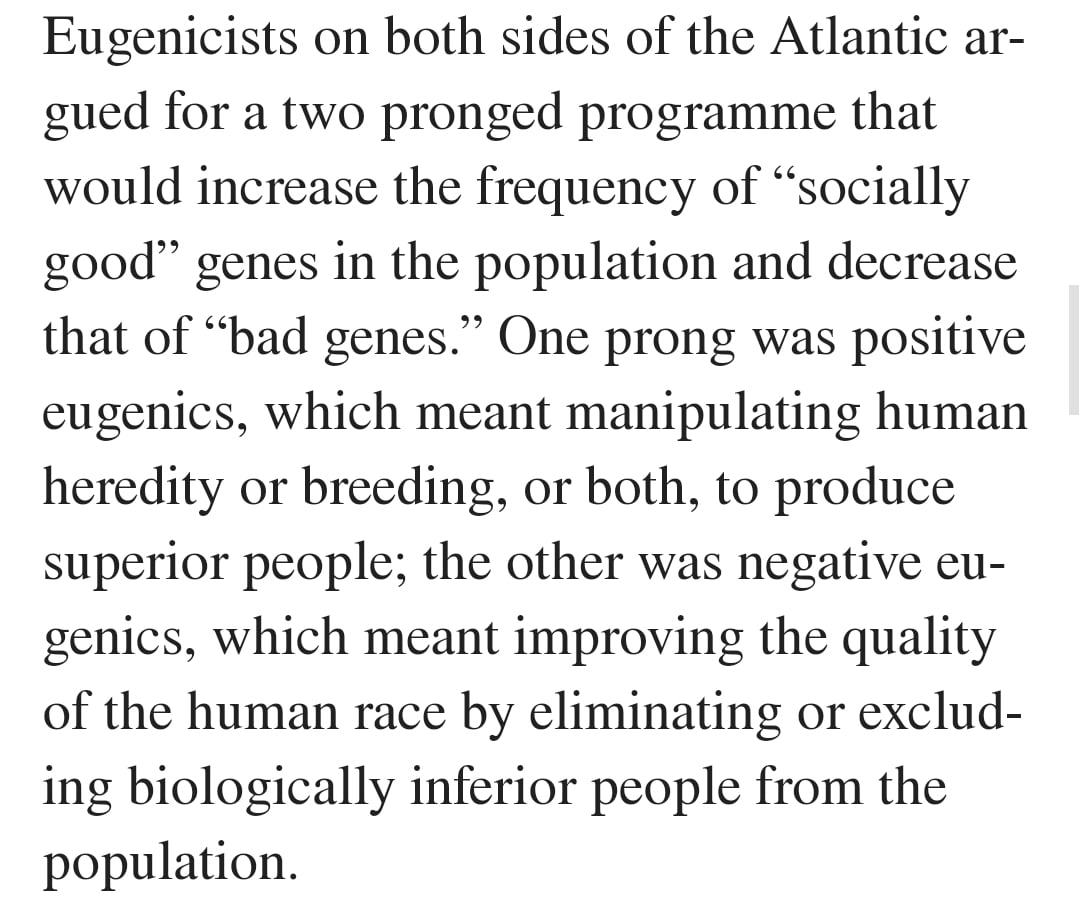
https://www.ncbi.nlm.nih.gov/pmc/articles/PMC1127045/
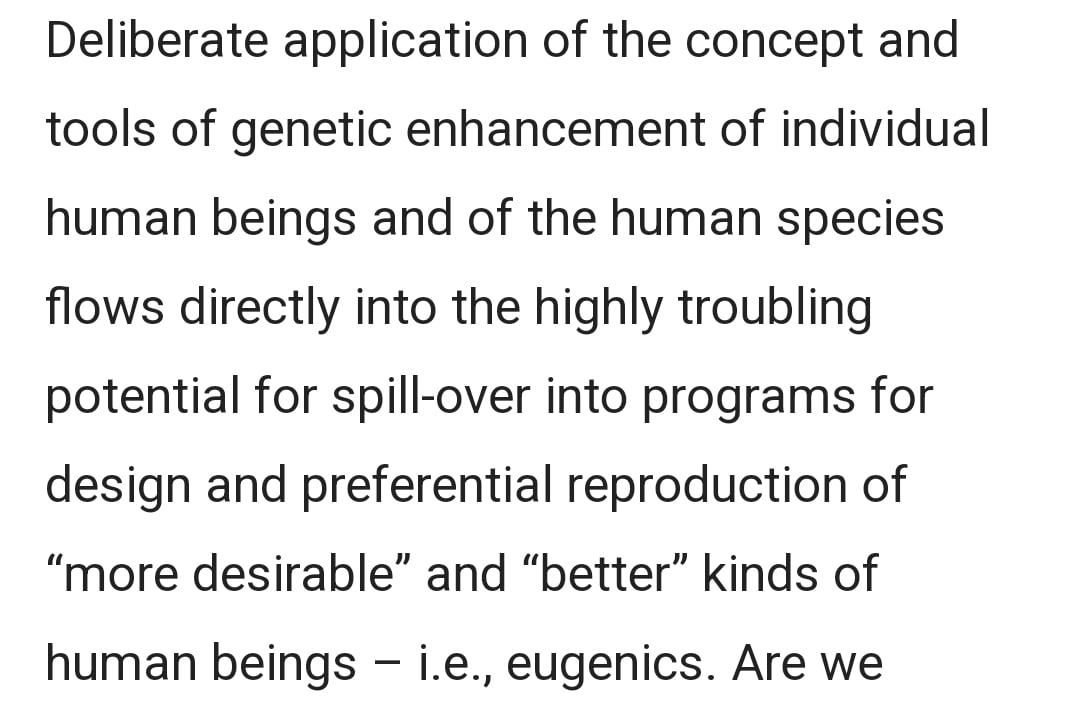
https://www.nature.com/articles/s41434-019-0088-1
https://en.wikipedia.org/wiki/New_eugenics
New eugenics […] advocates enhancing human characteristics and capacities through the use of reproductive technology and human genetic engineering.
You can see that you’re just doing what I described and making an argument solely based on “eugenics” being a broad term that includes evil things right? What is the concern you have about letting parents modify their unborn child’s genes, besides the fact that it could ungenerously be described as eugenics?
I don’t think it tries to justify that the Illyrians are better at it, or even that the practise should be justified in any way.
It’s more about the treatment of others in a reasonable, decent way which seems to have been clearly lacking from Una’s account. So regardless of what practices her people might have been continuing against Federation law, that did not and does not justify the behaviour of others.
So I agree, it doesn’t try to justify the dangers of genetic modification though I do not believe that’s the aim regardless. It’s about treating others decently. From a continuity standpoint I don’t think it’d make sense to do so anyway, but my concerns still lie here: how did the Federation manage to cover up the treatment of the Illyrians up through the TNG/DS9/VOY era?
An excellent episode which is virtually certain to displace “Measure” as Trek’s most venerated hour of space court.
One thing that always strikes me about SNW—even the middling episodes—is just how vivid, bright, and beautiful this show is. Grimdark has its moments, but this visual style is a much better and more natural fit for Star Trek.
It was good but don’t think it will surpass jean luc
And just to have measure of a man’s back for a second, the trial was decided on a fairly deep point: how we chose to discriminate against individuals becomes the way we chose to consign whole groups or races to awful fates, however obvious the individual differences seem and however much they seem to justify differential treatment.
Cuts across a lot of things, and more than the principles addressed in this episode especially the asylum technicality at the end (which I enjoyed just from legal drama standpoint)
It’s been a good while since we had a good old fashioned courtroom episode. Given how high the bar had been set in the past, well done to everyone involved that they managed to comfortably clear it.
I just finished the episode and wow… It was fantastic. It elicited quite an emotional response from me.
Measure of a woman
This really was classic trek, Star Trek as Star Trek should be.
Don’t have much to add, but I really loved the episode



